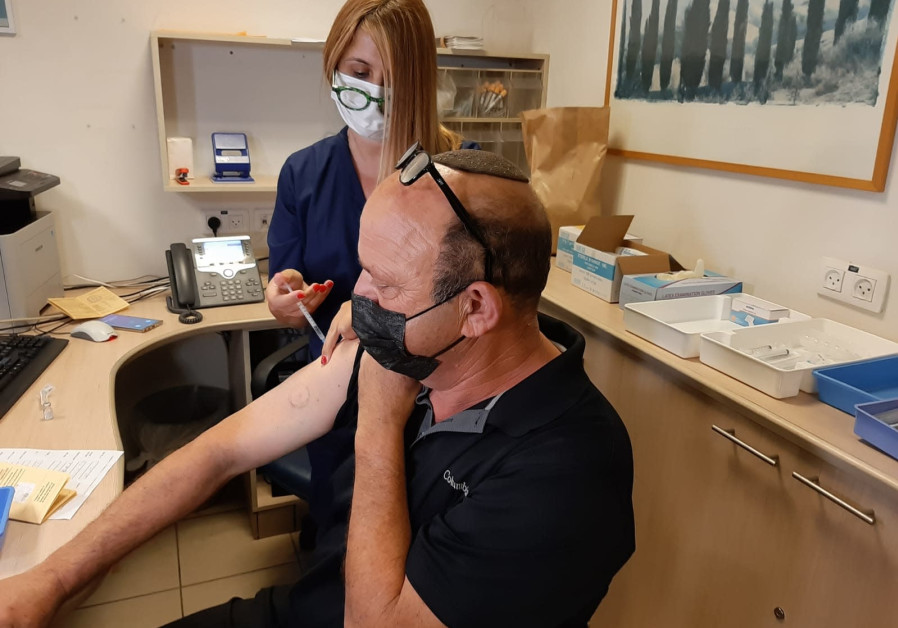Rambam Health Care Campus launched a serological survey on Monday to help determine if antibodies really wane and a booster shot of the Pfizer vaccine could be necessary after six months.
Around 1,500 Rambam employees, as well as retirees who volunteered to take part in the survey, underwent serological tests at the hospital with the support of the Health Ministry.
The results of the test, taken approximately six months after these individuals received their second dose of the vaccine, will be analyzed to help determine the country’s policy.
Pfizer said over the weekend that it was planning to request United States emergency authorization in August for a booster shot of its COVID-19 vaccine, based on early data from Israel that immunity declines after six months and its own data showing that an extra shot can sharply increase protection against the virus.
US and European Union health officials have so far said there is not enough evidence to give such a booster to the general public. Israel has also said it is too early to make such a decision but did start vaccinating immunocompromised individuals on Monday.
Sheba Medical Center became the first in the world to administer the third shot on Monday afternoon, giving the jab to heart transplant patients. According to Sheba cardiologist Prof. Yael Peled-Potashnik a study by the hospital showed that fewer than 80% of heart transplant patients even develop antibodies and less than 50% of them are neutralizing antibodies, meaning that they can defend the person’s cells from the virus.

“It is a very exciting moment,” Peled-Potashnik said. “The timing is very important for our patients, and we hope it will give them the opportunity to return to normal life.”
In recent weeks, Israel has seen a spike in virus cases driven by the Delta variant. Many of the older people who have developed serious cases were already vaccinated, including a couple in their mid-80s who died from COVID-19 in the last week while being treated at Rambam. The hospital said that they suffered from underlying medical conditions.
“It is very important now [to give the booster] because we have now the emerging Delta variant and waning immunity, so it is really urgent to do it now,” said Prof. Galia Rahav, director of Sheba’s Infectious Disease Unit. “I hope in two days we will be able to vaccinate all of our [immunocompromised] patients.”
Rambam has been running a serological survey since the start of the country’s vaccination campaign. The first survey took place in January, about one month after its staff was vaccinated, and the second in April, three months later.
Rambam has been running a serological survey since the start of the country’s vaccination campaign. The first survey took place in January, about one month after its staff was vaccinated, and the second in April, three months later.
“We found that most of the subjects in the survey so far have measurable levels of COVID-19 antibodies,” said Rambam Deputy Director Dr. Yael Shachor-Meyouhas about the three-month test. “During this period, we detected a decrease, but it is normal.”
However, she added, “among staff members over the age of 60, a lower level of antibodies was found in their bodies to the virus, compared to the other subjects in the survey. It is important to note that until recently, no COVID-19 infections were observed among staff members.”
